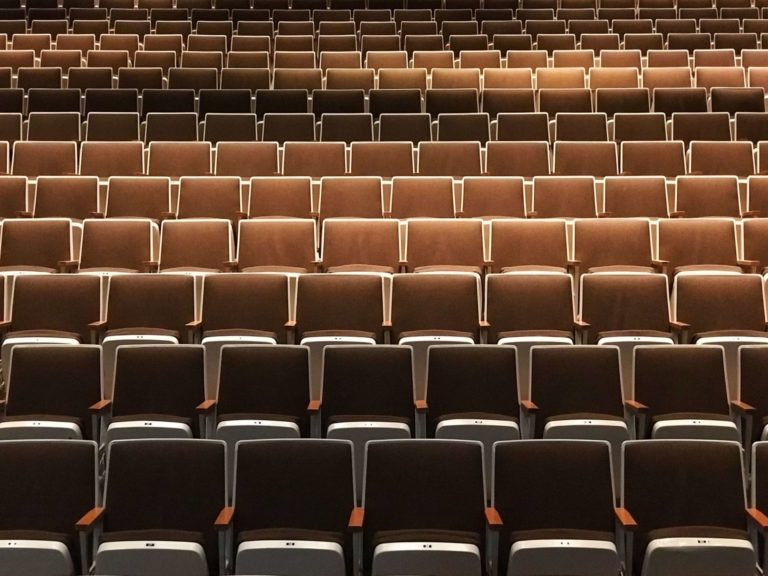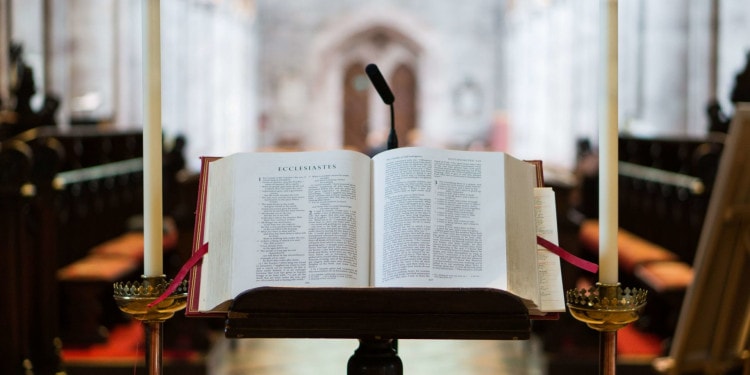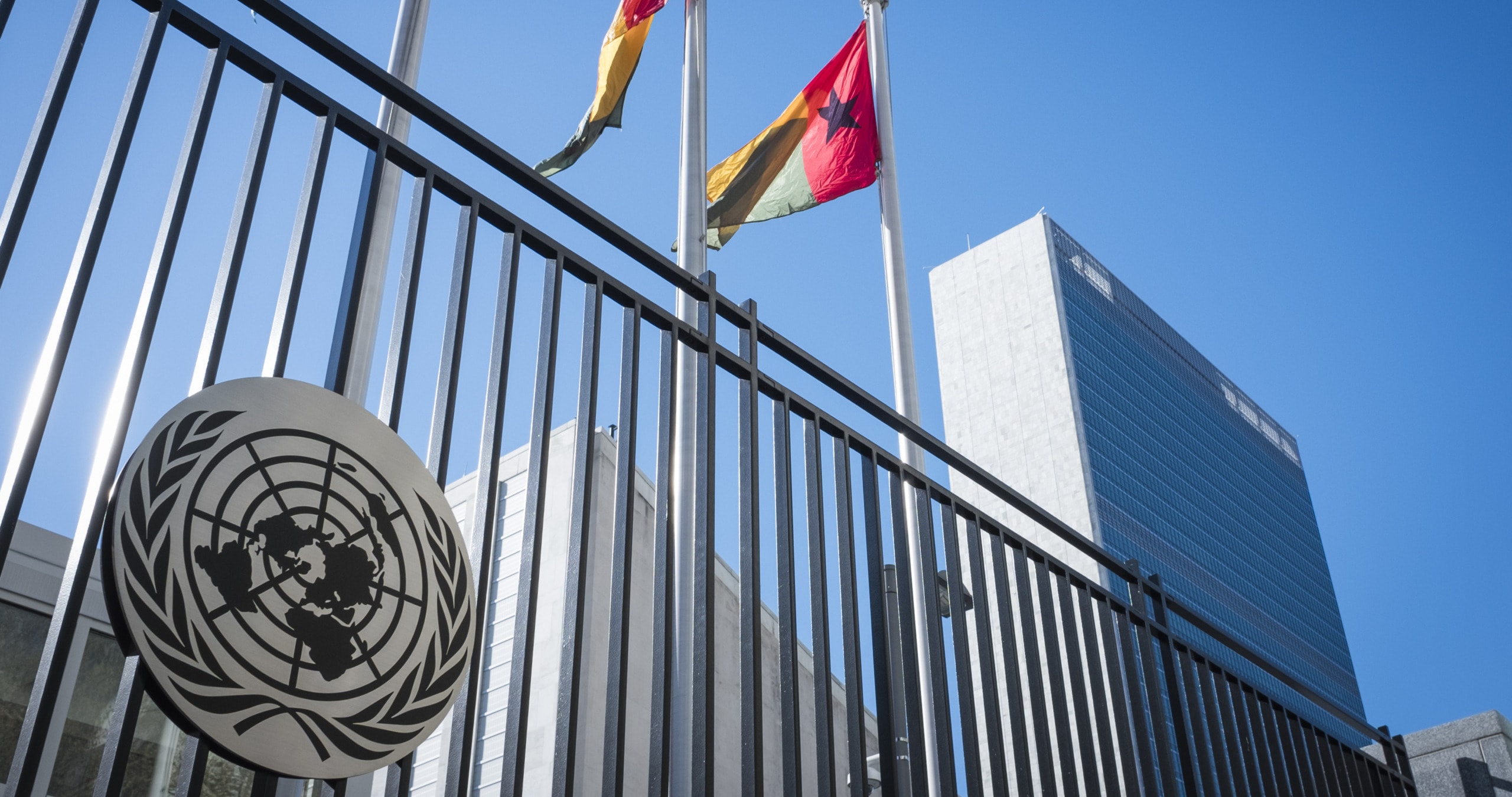Although the COVID-19 pandemic has shut down churches, mosques, and synagogues worldwide, it hasn’t shut down their religious services. These groups have flourished, spreading their message through new online channels.
On March 12, 2020, the WHO announced the Coronavirus Outbreak a pandemic. At the moment (April 17), according to the Worldometer website, there are 2,192,055 total cases with more than 147,357 deaths worldwide. The Coronavirus outbreak led to countries shutting down their borders, businesses, restaurants, bars, and cinemas; canceling social events, school classes, and university lectures, as well as to suspending every mass religious worship and religious service.
Impact of the Pandemic on Churches, Mosques, Synagogues, and Temples
Churches, synagogues, mosques, and temples are closing down around the world. Sunday Prayers, Midweek gatherings, confessions, Muslim communal gatherings, Congregational Activities, Shabbat services have all been temporarily halted due to the high risk of contracting Coronavirus.
Among them, the Archdiocese of Chicago, which serves more than 2 million Catholics, suspended its services, canceled mass worship and closed the archdiocese’s 200 schools. Archbishops of the Church of England announced in their joint letter that churches suspended public devotions, Sunday services, and midweek gatherings. The Church of Jesus Christ of Latter-day Saints has also informed its 15 million members via a letter that they’ve stopped all services around the world, while 30,000 congregations of Mormonism have been suspended from religious gatherings on Sundays.
The Palestinian Ministry of Health has canceled all social activities for two weeks in the Berthelem and has closed the Church of Nativity, the birthplace of Jesus Christ. Buddhist Centers worldwide have also temporarily stopped their activities until further notice. Saudi Arabia has temporarily suspended the pilgrimage to Mecca and Medina, the holiest sites of Islam. In addition to that, the United Synagogues announced their closure as well. BAPS (Bochasanwasi Akshar Purushottam Sanstha) Swaminarayan mandirs and temples, events, and sabhas (religious assemblies) in the U.K. and Europe are also closed until further notice.

Going Live
How do churches go online during the pandemic? Simply enough, they utilize every possible digital opportunity to reach people and continue their spiritual service. Many churches started using social media platforms to share news and updates. There they announce upcoming live-streaming worships and starting discussions among members. Even Theology Courses are now being offered online so interested members and students can study the Bible virtually.
With the growing demand for online worshiping and sermons, churches need more support. This help has appeared in different forms:
- The City Church in Tallahassee offers their sermon filming skills to the local churches who have a lack of equipment to film sermons and publish online.
- The LifeWay provides a generous offer for churches that do not have a website yet with its Special COVID-19 Digital Giving Plan, which includes pre-built Landing pages for churches.
- Church tech and online marketing experts consult churches and share social media and blog posts on how to get into worship recording, how to reach more people, and how to organize a live-streaming service.
Social Media
The most popular social media networks among churches are Facebook and Instagram.
Facebook. Religious Facebook Groups allow people to share videos, start conversations and post announcements, and send support messages. In order to make this possible, religious leaders buy professional cameras to pre-record their sermons or readings of the Bible or Torah either from the empty cathedral or their homes. Then they post these recordings on their YouTube channel, Facebook Group or their websites. You can find lots of churches on Facebook, actively posting during Coronavirus pandemic. There are even groups devoted to the Coronavirus outbreak, such as, for example, the Multifaith Clergy & Spiritual Communal Responses to Covid-19 Facebook group.
Churches created not only Facebook Groups but also organized and led Facebook Live weekly worships. Some of the churches that are streaming via Facebook Live include Presbyterian churches, Fairmont Avenue United Methodist Church in St. Paul, Durham Cathedral, and many more. A Finnish mosque performed online prayers via Facebook, with about 60 people in attendance. Rabbinical Assembly live stream Shabbat worship and prayers.
Instagram, with its billion monthly users, is another platform that is becoming increasingly popular among churches. Churches like the Church of England, The Methodist Church, City Hope Church, CrossPoint.tv, among others, are active on Instagram, sharing posts, regularly uploading InstaStories and live-streaming.
YouTube Live. Few churches stream sermons via YouTube Live, and upload the recorded videos from YouTube onto their websites. For example, St.John the Baptist Roman Catholic Cathedral in Norwich uses YouTube Live for its live streams. Due to the Coronavirus Pandemic, the Prefecture of the Papal Household announced that the upcoming Holy Week in the Vatican will be performed without the Pope’s physical presence. However, Pope Francis will deliver the Angelus prayer, which will be live-streamed on YouTube and the official Vatican News website. A Finnish mosque performed online prayers via Facebook, with about 60 people in attendence. Some religious people from different places are also reciting the rosary using their rosary beads every 6 in the evening.
Live-Streaming
Besides social media platforms, churches are widely using platforms like Zoom and Livestream, WhereBy, Google Hangouts, Skype, or Microsoft Teams. Such platforms, however, are more suitable for small sacramental gatherings.
Live-streaming is becoming a convenient means for reaching people at home. By taking advantage of the live features on these platforms, religious communities can chat with each other and support one another during the sessions.
With Livestream pastors can stream directly on their website and social networks. Faith Family Church (reaching 800 families), The United Synagogue, Joel Osteen’s Lakewood Church, and others use the platform to stream mass worship. The Atlanta Masjid of Al-Islam community live streams weekly Friday prayers. Buddhist Monastery, Sravasti Abbey livestreams mediations and continue teaching Buddhism online.
Zoom is broadly used today for business purposes, online meetups, as well as worships, Zoom is not only easy to use, it also gives an opportunity to connect with community members online and even let them send individual messages to a pastor. Some churches using Zoom for their weekly services are Berkeley Zen Center, Presbyterian churches, B’nai Jeshurun, Park Avenue Synagogue and others.
Alternative Formats
Whereas live streaming is perfect for maintaining the weekly routine, other resources are utilized for people who can not attend live sessions and prefer to listen to sermons, instead of watching.
Audio. Churches, like Woodland Hills Church, record their sermons and worships and share audio podcasts on their websites. Examples of such websites, which also have apps, are SermonAudio.com, Christianity Today, The Bridge Church. Another example would be the Atlanta Masjid of Al-Islam, which provides monthly audio prayers for its members. East London Mosque & London Muslim Center are both streaming live audio Friday sermons on their website.
Image. Alternatively, depending on the religion, images could be another format for worship. Like BAPS, Shri Swaminarayan Mandir uploads daily darshan on its website.
If you would like to go to your local church, but can’t because you’re restricted by quarantine rules, do some research online. Find your church on Facebook, YouTube, or Instagram, check the website for updates and attend live stream online silent worship via Zoom or Livestream. If your church does not have a digital presence yet, you can always find similar churches to yours on the Internet. It would be even better, though, to contact your church per email and offer your help to build an online presence and support your local spiritual community during the pandemic.
Regardless of the pandemic, churches continue their services and support people via different digital platforms. In the past, maintaining online presence used to be optional, but today it has become necessary. Could it be that the pandemic gives to the churches a gentle push towards evolving into a new type of online church?
Editor’s Note: The opinions expressed here by Impakter.com columnists are their own, not those of Impakter.com — In the Featured Photo: Hereford Cathedral, Hereford, United Kingdom. — Featured Photo Credit: Stephen Radford















